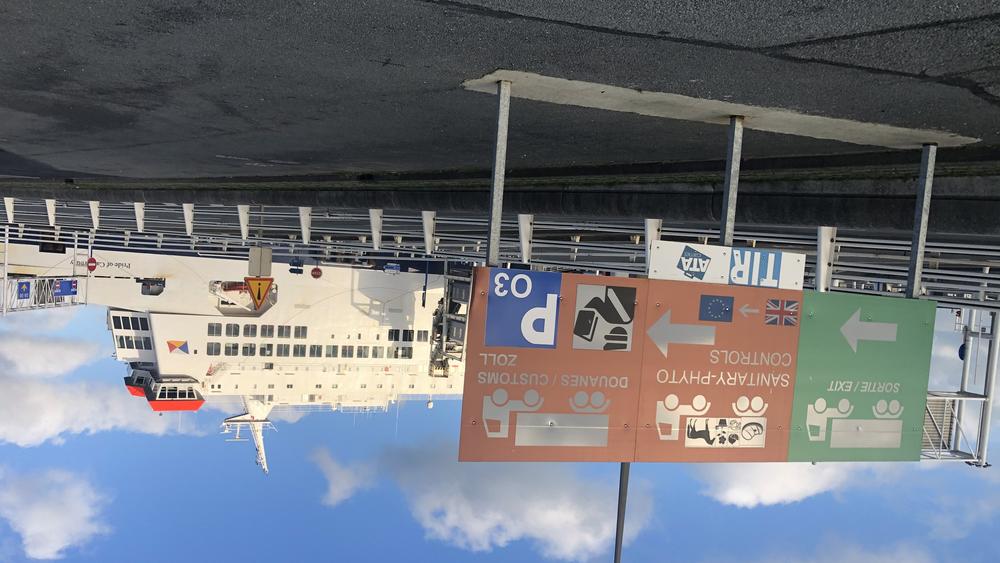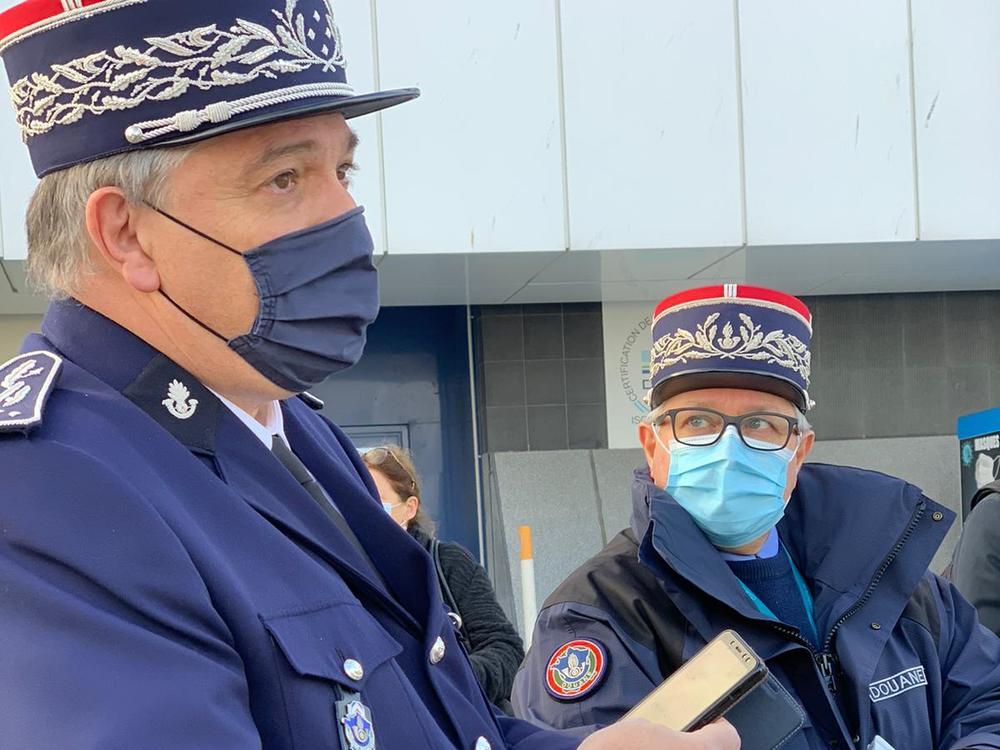Section Branding
Header Content
Brexit Arrives With Border Controls Reinstated Between Britain And The EU
Primary Content
Updated at 6:38 p.m. ET
The maritime border between the United Kingdom and mainland Europe suddenly became a lot stronger Thursday evening as Brexit took effect at 11 p.m. U.K. local time, reinstating border controls between Britain and the European Union for the first time since 1993.
On the French side of the English Channel, customs officials in the Port of Calais said they were more than prepared for the moment.
"We have spent the last three years preparing for this moment," says Jean-Michel Thillier, Director of Customs for the Hauts-de-France region of northern France.
While there were some fears of a repeat of the pre-Christmas chaos, traffic on both sides of the channel was running smoothly on Thursday evening.
To ensure things continue to run smoothly from Jan. 1 onward, the French government has hired an additional 700 customs officers, built three new 24/7 offices and a special facility for trucks to fill out declarations as part of a $15.8 million infrastructure investment.
'Smart Border'
An average of 5 million trucks cross the English Channel every year, making it one the world's busiest shipping routes.
To keep traffic flowing as quickly as possible, the French government has invested an additional $49 million in "smart border" technology that will let businesses declare goods to French customs online before shipments leave the factory.
After declaring, trucks will be given a barcode that customs agents can simply scan at the border.
Trucks carrying animal products or plants will require additional checks. But the vast majority of all other trucks which follow procedures in advance will be waved through.
Still, French officials said there were fears that many businesses aren't ready for the new protocols.
"Some of these businesses will have to learn the hard way by making mistakes the first time around," says Thibault Rougelot, a French customs official working in the Port of Calais. "Once they see how long it takes to get things sorted, we hope they won't make the same mistake twice."
Any truck entering a customs checkpoint without a barcode will be required to have a full inspection carried out.
When asked if he felt customs officials in the U.K. were equally prepared for the new protocols, Hauts-de-France Customs Director Jean-Michel Thillier paused before responding.
"I think they have worked a lot in these last few months," Thillier said.
"I hope they will be prepared. We'll see."
Copyright 2020 NPR. To see more, visit https://www.npr.org.


